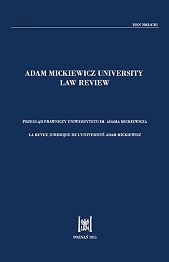Multilingualism as the Constitutional Principle of the Equality of Languages in European Union Law
Multilingualism as the Constitutional Principle of the Equality of Languages in European Union Law
Author(s): Ewa WaśniewskaSubject(s): Language studies, Constitutional Law, EU-Legislation, Politics and Identity
Published by: Uniwersytet im. Adama Mickiewicza w Poznaniu
Keywords: multilingualism; European Union; equality of languages; EU citizens; constitutional principle; language regime of EU institutions; language practice of EU institutions;
Summary/Abstract: Multilingualism is a constitutional principle of European Union law. This principle is manifested in the recognition of the equality of all the official languages and Member States. At the beginning of the 1950s, the European Community addressed linguistic equality issues by providing multilingualism protocols and Regulation 1/58. Access for citizens to legislation in every official language of the European Union is a phenomenon on an international scale. The institutions of the European Union establish their own language regimes and apply various practices adapted to the specifics of the functions they perform. The purpose of this article is to analyze and assess the impact of multilingualism as a constitutional principle of European Law.
Journal: Przegląd Prawniczy Uniwersytetu im. Adama Mickiewicza
- Issue Year: 2020
- Issue No: 11
- Page Range: 185-205
- Page Count: 21
- Language: English

